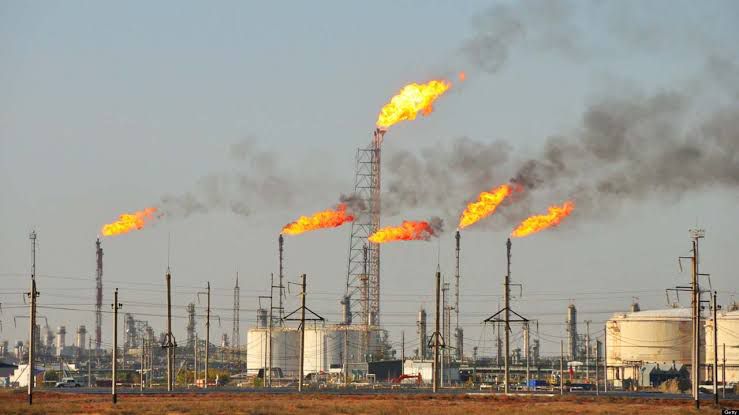Abuja, NIGERIA — A Federal Government team tasked with monitoring compliance to the Host Community Development provisions under the Petroleum Industry Act (PIA) was detained and held hostage for over two hours at Sterling Exploration and Energy Petroleum Company (SEEPCO) in Delta State – Nigeria. The incident occurred on January 17, 2025, during a routine official visit to the company as part of a broader sensitization and compliance monitoring effort.
The team, led by Engineer George Bucknor, was on a scheduled visit to SEEPCO to ensure that the company was adhering to the provisions of the PIA, which aims to promote the development of host communities in Nigeria’s oil-producing regions. The visit was part of a larger initiative by the Nigerian Upstream Petroleum Regulatory Commission (NUPRC), which had appointed Mecco and Marine Holdings Ltd, the consulting firm representing Engineer Bucknor’s team, to oversee the implementation of key provisions of the PIA.
The monitoring team’s mission was to sensitize oil operators and stakeholders on the importance of strict compliance with the Nigerian content laws enshrined in the PIA. Engineer Bucknor began the session by explaining that the purpose of the visit was not to penalize companies but to encourage voluntary cooperation, foster dialogue, and ensure that host communities benefit from the socio-economic impacts of oil production.

Upon their arrival at SEEPCO’s Kwale office, the team was welcomed by the company’s base manager, Mr. Simon K. John, and the Public Relations Officer, Mr. Emmanuel Ajang. They were then given a tour of the office before the official sensitization meeting commenced. Engineer Bucknor introduced his team to SEEPCO’s staff and explained the objectives of their visit. He also clarified that his consultancy firm had been appointed by NUPRC to monitor and verify compliance with the PIA’s provisions.
As the meeting progressed, Engineer Bucknor emphasized the importance of collaboration between oil operators and host communities. He reiterated that the PIA is designed to create a more sustainable and mutually beneficial relationship between the two parties. He also explained that the monitoring team’s role was to ensure that host communities receive their due social and economic benefits from petroleum operations, in line with the provisions of the Act.
However, trouble began when a senior management official of SEEPCO, accompanied by an expatriate, entered the room midway through the meeting. The foreign national, whose identity remains undisclosed, ordered the team to cease their video recording and instructed security personnel, including soldiers on guard duty at the office, to detain and interrogate the members of the compliance team.
The sudden escalation of tension left Engineer Bucknor and his team shocked and confused. In an attempt to defuse the situation, Engineer Bucknor immediately contacted the NUPRC headquarters in Abuja to confirm that the team was on an official mission. A senior official from NUPRC confirmed the legitimacy of the visit and assured the team that they were acting in accordance with government protocols. Despite this confirmation, the SEEPCO official persisted in his instructions, ordering the soldiers to continue their interrogation of the monitoring team.
The detention lasted for nearly two hours, during which the compliance team members were reportedly subjected to intense questioning. They were kept in a state of uncertainty, with little communication or explanation from SEEPCO’s management or security personnel regarding the reasons for their detention.
It was only after this prolonged period that the soldiers escorted the team members out of the SEEPCO office. Engineer Bucknor and his colleagues were left frustrated by the treatment they had received and the lack of cooperation from the oil company. The experience has raised serious concerns about the level of respect for regulatory oversight in the oil industry, particularly in the context of the ongoing implementation of the PIA, which seeks to improve transparency and accountability in the sector.
Following the incident, a formal report was submitted to the Nigerian Upstream Petroleum Regulatory Commission (NUPRC) detailing the events that transpired. The report calls for a thorough investigation into the actions of SEEPCO’s management, the expatriate involved, and the security personnel who carried out the detention. NUPRC is expected to take appropriate action in accordance with its mandate, ensuring that such incidents do not occur again in the future and that government monitoring teams can carry out their work without interference or intimidation.
This incident has highlighted ongoing challenges in the oil and gas sector, particularly with regard to the relationship between regulatory bodies and oil companies. Despite the Nigerian government’s efforts to ensure the equitable distribution of oil revenues and the sustainable development of host communities, tensions between regulatory teams and oil operators continue to pose a significant hurdle.
For now, the SEEPCO’s actions remain in the spotlight as authorities work to address the situation and restore confidence. The full details of the investigation and any subsequent actions taken will likely be made public by NUPRC in due course.
The government’s commitment to enforcing the provisions of the Petroleum Industry Act is critical to improving the overall business environment in Nigeria’s oil sector. However, incidents such as this highlight the need for clearer communication and cooperation between stakeholders to ensure the success of this important legislation.
In the meantime, local communities and industry experts continue to follow the unfolding story, hoping that the incident will serve as a catalyst for improved compliance and accountability across the Nigerian oil sector.